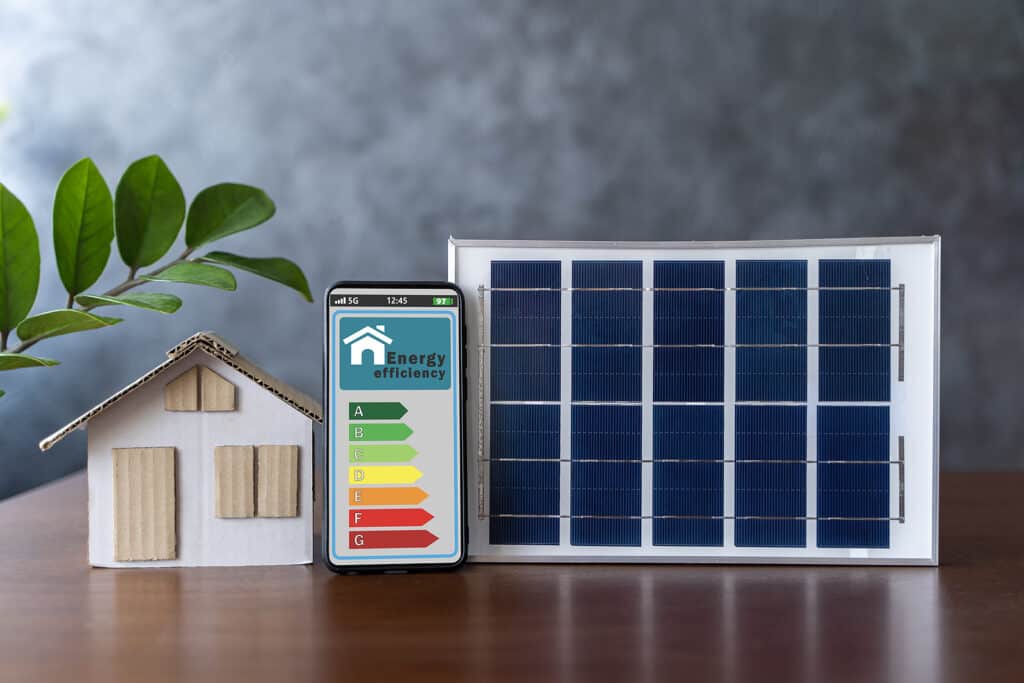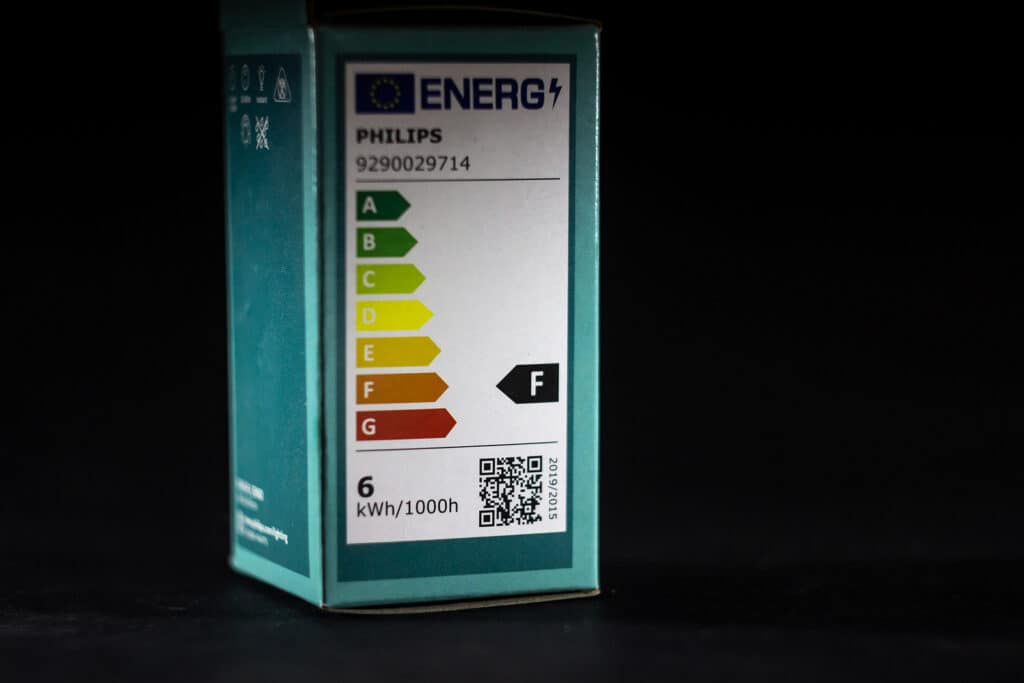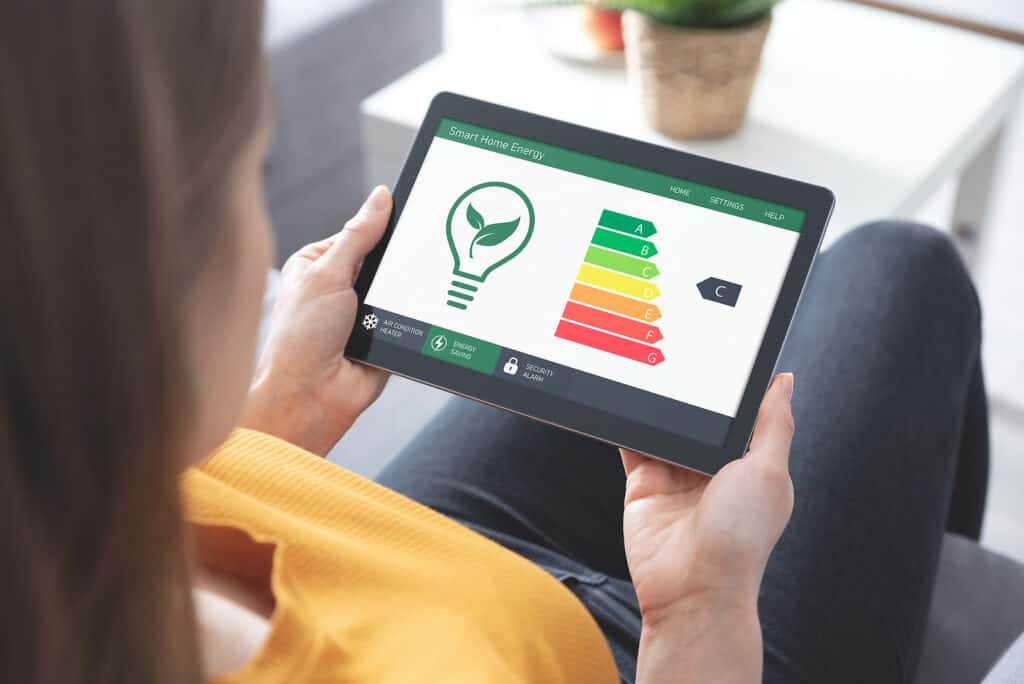Energy efficiency has emerged as a key driver in the pursuit of sustainability and energy independence. From home appliances to industrial machinery, energy-efficient alternatives are revolutionizing the way we consume energy. This blog post delves deep into the role of energy-efficient appliances in achieving energy independence, and why this shift is crucial for a sustainable future.
Energy Efficiency and Energy Independence
Energy efficiency plays a critical role in our modern society as it entails the deliberate and strategic reduction of energy consumption to accomplish a particular task or function. By employing various techniques, technologies, and practices, energy efficiency examples aims to minimize energy waste and optimize resource utilization. This approach spans a broad spectrum of applications, impacting diverse aspects of our daily lives, ranging from transportation systems and industrial processes to the operation of household appliances.
In contrast, energy independence represents a significant aspiration for countries and regions to reduce or eliminate their dependence on imported energy resources. Instead, the focus shifts towards harnessing and utilizing their own renewable energy sources, such as solar, wind, hydro, and geothermal power. The overarching objective is to establish a sustainable and self-reliant energy economy that can operate independently from external energy suppliers.
The Importance of Energy-Efficient Appliances
Energy Efficient appliances meaning, whether in residential or commercial settings, constitute a substantial proportion of the overall energy consumption. Consequently, the adoption of energy-efficient appliances emerges as a pivotal measure in curbing energy demand and mitigating the adverse environmental impacts associated with greenhouse gas emissions.
Energy-efficient appliances are designed with cutting-edge technologies and engineering advancements that prioritize energy conservation without compromising functionality or performance. These appliances employ innovative features, such as improved insulation, precise temperature control, intelligent sensors, and optimized energy management systems. By leveraging these advancements, energy-efficient appliances can achieve significant energy savings compared to their conventional counterparts.
The significance of energy-efficient appliances extends beyond individual households; it extends to the broader context of energy conservation and environmental sustainability. By opting for energy-efficient appliances, consumers contribute to a collective effort aimed at reducing overall energy consumption and minimizing the release of greenhouse gases into the atmosphere. Such actions align with global initiatives to combat climate change, enhance energy efficiency, and foster a transition towards a more sustainable future.
Moreover, the adoption of energy-efficient appliances offers tangible benefits to individual consumers. By reducing energy consumption, households can potentially lower their utility bills, leading to long-term cost savings. Additionally, energy-efficient appliances often boast enhanced durability, reliability, and performance, resulting in a more satisfying user experience and reduced maintenance costs.

Impact of Energy-Efficient Appliances on Energy Independence
The integration of energy-efficient appliances plays a pivotal role in realizing and advancing the concept of energy independence, contributing to reduced reliance on external energy sources. This impact can be observed through two main mechanisms:
Reduced Energy Consumption
Energy-efficient appliances are designed to utilize significantly less-energy compared to their conventional counterparts while maintaining or even improving performance. By incorporating advanced technologies and engineering innovations, these appliances minimize energy waste and maximize efficiency in their operation. As a result, the overall demand for energy is reduced, leading to decreased reliance on energy sources, especially non-renewable ones such as fossil fuels.
The adoption of energy-efficient appliances at a large scale translates into substantial energy savings across various sectors, including residential, commercial, and industrial. This reduced energy consumption directly contributes to the goal of achieving energy independence by mitigating the need for importing energy resources and enhancing domestic energy production and utilization.
Facilitates the Shift to Renewable Energy
Energy-efficient appliances not only reduce overall energy demand but also facilitate the transition to renewable energy sources. By lowering the total energy required, these appliances alleviate the burden on existing energy infrastructure and make it more feasible to meet a larger proportion of energy needs through renewable sources.
In regions where renewable energy infrastructure is still in the development phase or where access to traditional energy grids is limited, energy-efficient appliances become particularly crucial. Their lower energy requirements enable a more gradual and manageable transition to renewable energy sources, allowing for the integration of decentralized energy systems such as solar panels, wind turbines, and small-scale hydroelectric power. This decentralized approach empowers communities and individuals to generate their own clean energy and reduce their dependence on centralized energy production and distribution.
Moreover, the adoption of energy-efficient appliances not only complements renewable energy generation but also optimizes its utilization. By using less-energy, these appliances make it easier to maximize the contribution of intermittent renewable sources by matching energy consumption patterns with the availability of renewable energy supply.
How to Choose Energy-Efficient Appliances
When embarking on the journey of selecting examples of energy efficiency, it is essential to consider several factors to make an informed decision that aligns with your energy-saving goals. Here are some key considerations to keep in mind:
ENERGY STAR Label
Look for appliances bearing the ENERGY STAR label. This widely recognized symbol, backed by the government, indicates that the appliance meets stringent efficiency energy criteria. ENERGY STAR-certified appliances are designed to provide significant energy savings without compromising performance, features, or comfort. This label ensures that the appliance has undergone rigorous testing and meets or exceeds energy efficiency standards, making it an excellent choice for reducing energy consumption and saving on energy bills.
Energy Efficiency Rating
Take note of the appliance's energy efficiency rating. Appliances are typically assigned an energy efficiency rating, such as an EnergyGuide label or an EU energy label. These ratings provide valuable information about the appliance's energy consumption and efficiency compared to similar models. Opt for appliances with higher energy efficiency ratings, as they will use less-energy and save more money over time. These ratings offer a useful benchmark for comparing the energy performance of different appliances within the same category.
Size and Capacity
Carefully consider the size and capacity of the appliance you need. While it may be tempting to opt for a larger appliance, keep in mind that bigger is not always better when it comes to energy efficiency. Choosing an appliance that suits your specific needs and usage patterns can prevent energy wastage. Select a size and capacity that matches your requirements to avoid excessive energy consumption. For instance, a refrigerator that is too large for your household's needs will consume unnecessary energy to cool unused space.
Additional Features
Evaluate the additional features offered by the appliance and their potential impact on energy consumption. Some features, while desirable and convenient, may increase an appliance's energy use. Consider the utility and necessity of these features against their potential energy cost. For example, a dishwasher with multiple wash cycle options may offer flexibility, but certain settings might use more energy than others. Determine which features are essential for your needs and prioritize energy efficiency in your decision-making process.

The Benefits Of Energy Efficient Appliances
Energy-efficient appliances meaning offer numerous benefits that positively impact individuals, households, and environment. Some key advantages of using energy-efficient appliances include:
Cost Savings
Energy-efficient appliances are designed to minimize energy consumption, leading to reduced utility bills. By using less electricity or fuel, these appliances help households and businesses save money in the long run. The cost savings can be particularly significant over the lifespan of the appliance, offsetting the potentially higher upfront cost of purchasing an energy-efficient model.
Environmental Conservation
Energy-efficient appliances contribute to environmental conservation by reducing greenhouse gas emissions and minimizing the overall ecological footprint. Traditional appliances often rely on fossil fuels, which contribute to climate change and air pollution. Energy-efficient appliances, on the other hand, consume less-energy, resulting in lower emissions and a decreased carbon footprint. By choosing energy-efficient options, individuals can actively participate in mitigating climate change and promoting environmental sustainability.
Enhanced Energy Security
Energy-efficient appliances contribute to improved energy security at both the individual and national levels. By reducing energy demand, reliance on imported energy resources is minimized. This reduces vulnerability to fluctuations in energy prices and geopolitical tensions related to energy supply. Furthermore, by conserving energy, individuals and communities become more resilient to potential disruptions in energy availability, such as power outages or shortages.
Increased Comfort and Performance
Energy-efficient appliances are designed to optimize energy use without sacrificing performance or comfort. They often incorporate advanced technologies and engineering innovations that improve efficiency while maintaining high-quality performance. Energy-efficient appliances can provide the same, if not better, functionality and features as conventional models, ensuring that users can enjoy optimal comfort and convenience while minimizing energy consumption.
Extended Lifespan and Durability
Energy-efficient appliances are typically built with high-quality components and materials, resulting in enhanced durability and extended lifespan. These appliances are designed to withstand the rigors of energy-efficient operation, ensuring reliable performance over an extended period. Consequently, users benefit from longer-lasting appliances that require fewer repairs or replacements, further reducing costs and waste.
Regulatory and Incentive Programs
Many governments and organizations offer incentives and rebate programs to promote the adoption of energy-efficient appliances. These initiatives can provide financial benefits, such as tax credits, rebates, or grants, making energy-efficient appliances more affordable for consumers. Additionally, some countries have implemented energy efficiency standards and regulations, ensuring that appliances meet minimum efficiency requirements. Compliance with these standards assures consumers that they are purchasing appliances that meet recognized efficiency benchmarks.

Case Studies: Energy-Efficient Appliances and Energy Independence
Several countries around the world have implemented initiatives and programs that showcase the positive impact of energy-efficient appliances on the path towards energy independence. Let's explore additional case studies:
Germany
Germany has taken significant strides towards energy independence through its Energiewende program. As part of this initiative, the German government has actively incentivized the adoption of energy-efficient appliances across the nation. These incentives include financial support, tax credits, and rebates for consumers who choose energy-efficient options. As a result, Germany has witnessed a notable decrease in energy consumption despite experiencing continuous economic growth. By prioritizing energy efficiency in appliance choices, Germany has reduced its dependence on external energy sources and taken significant steps towards achieving a sustainable and self-reliant energy economy.
Denmark
Denmark has set an ambitious goal to become entirely free of fossil fuels by 2050. Central to this strategy is the widespread implementation of energy-efficient appliances. Denmark recognizes the importance of phasing out outdated and energy-intensive appliances and replacing them with modern, energy-efficient alternatives. By encouraging the adoption of these appliances through various policies, incentives, and public awareness campaigns, Denmark aims to significantly reduce its reliance on fossil fuel-based energy sources. The integration of energy-efficient appliances is a crucial component of Denmark's comprehensive approach to achieving energy independence and transitioning to renewable energy systems.
Japan
In the wake of the Fukushima nuclear disaster in 2011, Japan embarked on a comprehensive energy transformation. The country's Top Runner Program sets stringent energy efficiency standards for various appliances and incentivizes manufacturers to develop and produce energy-efficient models. Through these efforts, Japan has been able to reduce its reliance on imported energy resources and enhance energy security.
United States
The United States has been actively promoting energy efficiency and renewable energy as part of its commitment to energy independence. The ENERGY STAR program, administered by Environmental Protection Agency (EPA) and the Department of Energy (DOE), has been instrumental in driving the adoption of energy-efficient appliances across the country. The program has successfully transformed the market, with ENERGY STAR-certified products accounting for a significant portion of appliance sales. This widespread adoption of energy-efficient appliances has contributed to reducing energy demand, enhancing energy efficiency, and moving closer to energy independence.
South Korea
South Korea has placed a strong emphasis on energy efficiency to achieve its energy independence goals. The country has implemented various policies, including the Green Technology Verification Program, which certifies energy-efficient appliances and incentivizes their adoption through financial support and tax benefits. These initiatives have not only reduced energy consumption but also stimulated the growth of the domestic energy efficiency industry, bolstering the country's energy independence efforts.
China
As the world's largest energy consumer, China has recognized the importance of energy efficiency and energy independence. The country has implemented stringent energy efficiency standards for appliances and established incentive programs to promote the use of energy-efficient products. These measures have not only reduced energy consumption but have also helped address environmental challenges associated with rapid industrialization and urbanization.
These case studies demonstrate the transformative power of energy-efficient appliances in the pursuit of energy independence. By implementing supportive policies, setting rigorous energy efficiency standards, and incentivizing the adoption of energy-efficient appliances, countries can make significant strides towards reducing energy dependence, enhancing energy security, and building sustainable and self-reliant energy systems.
The Future of Energy Efficiency
The future of energy efficiency holds promising advancements as technology continues to evolve and innovate. Anticipate appliances to become increasingly energy efficient, offering even greater energy-saving capabilities. One key enabler of this progress is the Internet of Things (IoT), which is poised to revolutionize the efficiency of appliances through smart connectivity and automation.
Smart appliances, integrated with IoT technology, will have the ability to monitor and analyze their energy consumption patterns in real time. They can intelligently adjust their operations to optimize energy usage, taking into account factors such as user preferences, time of day, and energy pricing. By leveraging data analytics and machine learning algorithms, these appliances will make autonomous decisions to achieve maximum efficiency while maintaining performance and comfort levels.
Beyond the individual appliance level, energy-efficient devices will play a crucial role in the future development of smart grids. Smart grids encompass a network of interconnected energy systems, enabling seamless communication and coordination between energy producers, consumers, and grid operators. Energy-efficient appliances will serve as key components within this ecosystem, providing vital demand-side flexibility.
FAQs About Energy-Efficient Appliances
Why are energy efficient appliances good for the environment?
Energy-efficient appliances are beneficial for the environment because they significantly reduce energy consumption, resulting in lower greenhouse gas emissions and decreased reliance on fossil fuels. By utilizing advanced technologies and design features, energy-efficient appliances maximize the efficiency of energy conversion, reducing waste and minimizing the overall ecological footprint. This conservation of energy directly contributes to mitigating climate change, improving air quality, and protecting natural resources, making energy-efficient appliances a crucial component in the transition to a more sustainable and environmentally responsible future.
What is the purpose of energy-efficient appliances?
The purpose of energy-efficient appliances is to minimize energy consumption and waste by utilizing advanced technologies and design features. These appliances are designed to perform the same tasks as traditional appliances while using significantly less energy, thereby reducing energy bills and environmental impact. Energy-efficient appliances play a crucial role in promoting sustainable practices, conserving resources, and mitigating climate change.
What is the role of energy efficiency?
The role of energy efficiency is to optimize the use of energy resources by maximizing output while minimizing input. Energy efficiency aims to achieve the same or improved results using-less energy. By implementing energy-efficient measures and technologies, such as appliances, buildings, and transportation systems, we can reduce energy consumption, lower greenhouse gas emissions, and enhance overall resource efficiency. Energy efficiency is a fundamental pillar in achieving a sustainable and resilient energy future.
How much energy does energy-efficient appliances save?
Energy-efficient appliances can save a significant amount of energy compared to their conventional counterparts. The exact energy savings vary depending on the appliance type, model, and usage patterns. However, studies have shown that energy-efficient appliances can reduce energy consumption by 10% to 50% or more. Over time, these savings can translate into substantial reductions in energy bills and a significant decrease in environmental impact, including greenhouse gas emissions and fossil fuel usage.
What is the purpose of an energy efficient home?
The purpose of an energy-efficient home is to optimize energy use and minimize waste throughout the entire residential environment. An energy-efficient home employs various measures and technologies to reduce energy consumption, such as efficient insulation, energy-efficient appliances, LED lighting, and smart energy management systems. By implementing energy-saving practices, homeowners can lower their energy bills, increase comfort, and significantly reduce their carbon footprint. Energy-efficient homes contribute to a more sustainable future by conserving resources, reducing environmental impact, and promoting energy independence.
Conclusion
Energy-efficient appliances play a pivotal role in achieving energy independence. By reducing energy demand and facilitating the shift to renewable energy, they contribute significantly towards a sustainable and independent energy future. By choosing energy-efficient appliances, we can all contribute to this essential goal.

